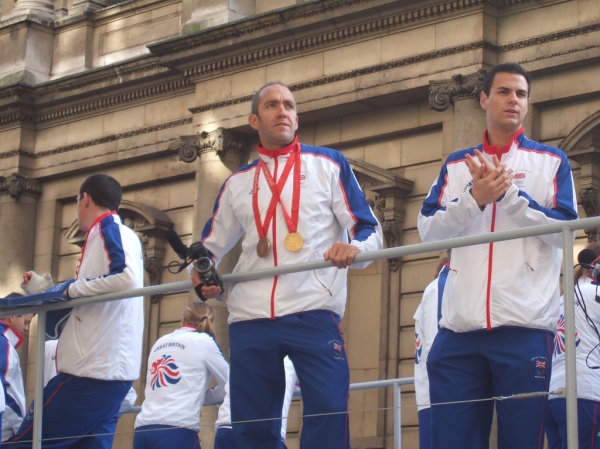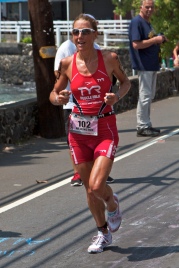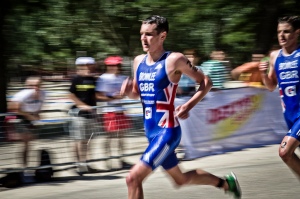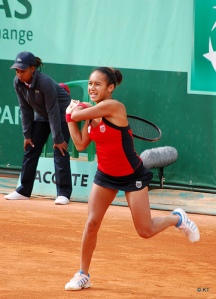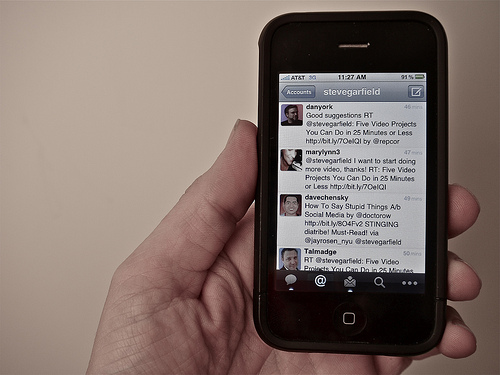Every year the football season ends, and every year the television and radio broadcasters roll out their trailers for the ‘summer of sport’, complete with soundtrack from Dodgy or Mungo Jerry.
You can forgive them for going a little overboard this year though, this year’s slightly different; in case you weren’t aware of it yet (although I’m not sure that’s possible), there’s the small matter of a summer Olympic Games in London to think about.
The games have become such a sporting behemoth that they have, and will, influence just about every other sporting event on the 2012 calendar.
With this in mind I’m going to add to the list of summer previews and give my take on the events in store for us in the next 3 months.
I won’t cover all the events, mainly because there are just too many to talk about, but I will give a brief overview of what I will be keeping an eye on, why it is worth your attention, and giving my prediction of how events might unfold (there’s no real insight involved in my predictions and any money lost from bets placed is not my responsibility).
Where to start then? Well we’re in the middle of the French Open tennis so that’s as good a place as any:
French Open Tennis (May 28 – June 10):
Why? – The potential for numerous pieces of history to be made. Rafael Nadal can set a record of seven titles in the Paris suburbs and join Bjorn Borg on 11 major titles. Novak Djokovic could become the eighth man to win the career grand slam, whilst simultaneously completing the ‘Djoko Slam’ of holding all four major trophies at once, and keeping alive his chances of completing the calendar Golden Slam. Federer could become only the third man to complete a second career grand slam were he to win, and Maria Sharapova could complete her first if the Russian gets her hands on the women’s title.
Who? – Nadal and Sharapova. I’d be stupid to bet against Nadal really. If Djokovic makes the final I’d still back Nadal, but he’d be less of a certainty to win. If he’s up against Federer though, then I can’t see the Swiss getting anywhere near the trophy. On the women’s side it just seems like everything has come together for Sharapova to triumph – the Williams sisters are both out, as is Francesca Schiavone and world number one Victoria Azarenka, Na Li hasn’t been too convincing either. I’d keep an eye out for Sam Stosur though.
UEFA European Championship Finals (June 8 – July 1):
Why? – It’s England in a football tournament, no matter how much we say we don’t expect anything, we can’t help but get caught up in the excitement. The Euros tend to provide more entertainment than the World Cup, less meaningless games and the football is generally of a higher quality. Any tournament with an Irish presence is better for it as well.
Who? – I’ll be very boring, play it safe, and say Netherlands v Spain in one semi, Germany v France in the other. That means the final could be a repeat of Euro 2008, but I’ve a sneaky feeling the Germans might just get their revenge and win their first tournament since Euro ’96.

Andy Murray faces a potentially career defining summer in 2012. Photo: Carine06
Queen’s Club, Aegon Championships (11 – 17 June):
Why? – It marks the start of the British sporting summer, it means Wimbledon is just around the corner and there are few finer sights than watching a load of professional athletes slipping around at the back of a slick grass court.
Who? – If Murray’s fit then I’d take him to make it three titles in West London. He humiliated Roddick there last year and the American is worse now than he was then, suggesting that Murray’s only real competition will come from Big Willy himself, Jo-Wilfried Tsonga.
Olympics Athletics trials (22 – 24 June):
Why? – The cream of British athletic talent all fighting for their place at a home Olympics. There’ll be some surprises, athletes who come from relative obscurity to book their place in the Olympic village, and there’ll no doubt be the odd high profile one who misses out too.
Who ? – I’m going to go for James Dasaolu to make headlines for all the right reasons. I interviewed him last summer during another period of rehab from injury, even at that stage his only focus was getting fit for the Olympics in his home city of London. The second fastest Brit over 100m last year, he’s already bagged an A standard qualifying time this season – all he’s got to do now is finish in the top two in the trials for his dream to become a reality. I also reckon a certain Mr. Chambers will fail to qualify for the individual event, his form this season doesn’t look good and I think the emotional roller coaster he’s been on over the past few years may have finally taken its toll.
Wimbledon Championships (June 25 – July 8):
Why? – Because it’s Wimbledon. Centre court has played host to some of the greatest finals of all time in the past five years and as is the way with any major tournament in this era, there are records to be broken. Federer could finally equal Pete Sampras’ record seven titles, or (depending on how events unfold in Paris) Novak Djokovic could march on to the third piece of the Golden Slam, Nadal could potentially win his twelfth major title or (whisper it) Andy Murray could win his first/second major title (OK 2nd is a little ambitious).
It’s not just the men’s draw that entices though, Sharapova will most likely be the favourite on the women’s side but those Williams sisters always save their best for the grass of South West London. Petra Kvitova won’t give up her title without a fight and Victoria Azarenka will be determined to reassert her authority on the women’s game. Throw into that the unpredictability of the women’s game at present and you may as well pick the quarter finalists out of a hat.
Who? – I’m going to stick with my Roland-Garros predictions and go for Sharapova and Nadal. Djokovic just isn’t quite on the high that he was last year, and if he’s not right on the top of his game then I think Nadal has the edge over him – as shown by the two clay court finals they’ve contested thus far this spring. You can never completely write off Roger either but his recent record at Wimbledon (only QF’s in the past two years) is worse than Murray’s, so you’d have to give Murray more chance than the Swiss magician.
On the women’s side, Sharapova has been pretty consistent in 2012, generally only losing to Azarenka, and should she make the final in Paris she’ll be coming to London with the number one ranking, a more consistent serve than she’s had for a couple of years, and potentially the confidence that comes with just having won a major title.
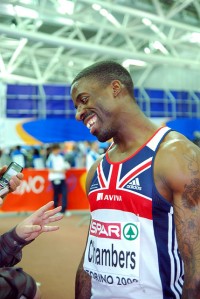
Will Dwain Chambers have be forced to run at in Helsinki to confirm a place at the Olympics? Photo: maxzix74
European Athletics Championships (June 26 – July 1):
Why? – Taking place the week after the trials, it’s surely the final opportunity for British athletes to grab the third discretionary place on offer at the Olympics if they didn’t perform at the trials. There may well be a lack of big names as the already qualified athletes will take a week’s rest in preparation for the games, but the competition is sure to be intense with so much at stake for those who do make the trip to Helsinki.
Who? – Who knows? It all depends what happens in Birmingham the previous weekend, who will have guaranteed their place and who will still be desperate to impress the selectors?
Tour de France (30 June – 22 July):
Why? – A sporting highlight every year for me. I can understand why people may find it boring and I can understand why some may be disillusioned with the regularity with which drugs cheats are highlighted in cycling. But I’ve been watching it since I was young, when I didn’t know what EPO was and when channel 4 gave me coverage in bite sized chunks at 6:30pm every evening. I remember Tom Steels blinding past me in 1998 to sprint to another stage victory, and I remember sitting having dinner in Lausanne, watching Marco Pantani ride past on his way to winning a post Tour criterium. Much has changed in the world of professional cycling since those days but much is reassuringly the same, Gary Imlach’s hair and the voices of Phil Liggett and Paul Sherwen are synonymous with the Tour de France, bringing an air of class to proceedings come those three weeks in July.
Who? – Without wishing to sound too myopically patriotic, Britain’s riders genuinely have the potential to make history at this year’s Tour. Bradley Wiggins has what will probably be his best chance ever to grab himself the yellow jersey in Paris, and Mark Cavendish doesn’t look to have much serious competition in defending his green jersey. Doubt comes in the form of Wiggins’ main rivals for yellow, whom we should know more about after this week’s Dauphiné, in which Brad is looking to defend his title from last year. There will also be doubt over Team Sky’s ability to support both Wiggins and Cavendish in their separate goals, the squad as a whole is looking good though and if any squad is capable of winning two jerseys, then I’d suggest Sky are the team to do it. With that in mind I’ll go for Wiggins in yellow, Cavendish in green and Cadel Evans and Pierre Rolland rounding off the podium places.
Test Series v South Africa (July 19 – 20 August):
Why? – The top two ranked test nations in the world going head to head. England desperate to hang on to top spot and Graeme Smith’s South African side desperate to wrestle it away from them. Eight of the world’s top twenty batsmen will be on show (four each), seven of the world’s top twenty bowlers (4-3 to England), the world’s best all-rounder, this series has it all.
Who? – Take your pick really. Dale Steyn is the best bowler in the world, Vernon Philander is chasing him for that moniker and James Anderson would like to have a say in the matter too. Andrew Strauss could become England’s most prolific century maker of all time, Kevin Pietersen always likes to put on a show against his former compatriots, Ian Bell loves batting in the English summer and Jacques Kallis is a match winner with bat or ball. Were it any other year this would be the most anticipated sporting contest of the summer.
Olympic Games (July 27 – August 12):
Why? – The biggest sporting occasion in history, in London. Do I really need to add anything more?
Who? – Too many to mention and that’s why I love the Olympics – wherever you look there are stars being born. The obvious star is a certain Jamaican sprinter, Yohan Blake will push Bolt all the way for the sprint double but I think Bolt will still win both and add the relay title to cement his place in sporting legend.
Elsewhere I think Jess Ennis might just falter, but I reckon Phillips Idowu, Mo Farah and Greg Rutherford could all have a golden summer.
In the hockey I think the GB women could go all the way to the final. They beat the world number 1s Argentina twice recently, however the Argentinians were missing their star player in Luciana Aymar, so I’ll hold fire on predicting a definite gold. The GB girls are more than capable of delivering it though. For the men I think the best they can do is fifth, since winning the European Championships in 2009 and a silver in the 2010 Champions trophy, they seem to have been on somewhat of a downwards spiral of results – I’ll go for a German victory over Australia in the final.

Will Laura Trott ride away with omnium gold? Photo: Rob Duin
We won’t be as all-conquering in the velodrome as we were in Beijing. I still think we’ll come away with five golds though; both pursuit teams, the women’s omnium and one each from Sir Chris Hoy and Vicky Pendleton – not a bad return really!
On the road (providing safe passages through the Tour) I think it’ll be win or bust for Mark Cavendish, IF he makes it over Box Hill 9 times and is still on the front then the gold is his for the taking – if not then someone like Tom Boonen or Thor Hushovd is more than capable of riding away with gold. In the time trial I think Wiggins can get a medal, probably not gold but I’d be surprised if he didn’t make the podium.
For the women I’m not so au fait with the opposition, although in Nicole Cooke and Lizzie Armitstead we have two of the best road racers in the world, and Emma Pooley has previous in the time trial as well.
In the triathlon I’d be hugely shocked if there wasn’t a Brownlee on the top step of the rostrum. Don’t ask me to say which one but Jonny’s early season form and Alistair’s pedigree suggest that if they’re both fit they’ll be fighting between themselves for gold and silver. For the women then Helen Jenkins looks to be in top form so far this season, she’s not as far above the rest of the pack as her male teammates but anything less than a podium place would be a big shock.
I could keep going and going but my knowledge starts getting a bit patchy for other sports now, so I’ll let you make up your own minds as to who’ll take home the medals in the greco-roman wrestling.

Will Djokovic have had a record-breaking summer when he gets to New York? Photo: Carine06
US Open Tennis (Aug 27 – Sep 9):
Why? – For every reason I’ve mentioned previously. Nadal, Djokovic and Federer are a joy to behold, throw in Murray’s penchant for the hard courts and crowds of New York and we’ve got the recipe for another cracker on our hands. On the women’s side, Serena would dearly love to put last year’s meltdown in the final behind her, Sharapova could well be coming to New York with two major titles and an Olympic gold medal round her neck, and Azarenka could have bounced back on the hard courts she loves to be a favourite again.
Who? – We’re still three months away from the action kicking off at Flushing Meadows with an awful lot of tennis to be played in between so it’s too early to say really. All the usual suspects will be there, but I’d throw the names of Tomas Berdych, Juan Martin Del Potro, Agnieszka Radwanska and Caroline Wozniacki into the mix as well.
That’s me done for now, no doubt I’ll go into more detail for specific events as the summer progresses. I’d be interested to see how many of my predictions you agree with though, and if anyone fancies calculating how much I’d win if I put an accumulator on all my predictions then you can have a cut of the proceeds when they all come good!
What have I missed?:
Three golf majors, England vs. Australia ODI series, a summer of Formula 1, a summer of Moto GP, Royal Ascot, Eastbourne tennis, domestic T20, Paralympics, Vuelta a España, World T20.
Enjoy your summer.






